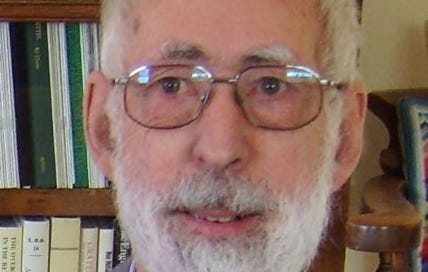Cold War ‘Spy Schools’: Dennis Mills and the Joint Service School for Linguists
Britain’s covert Russian language initiative during the 1950s offers an important lesson for today.
Is a Third World War possible? My thirteen-year-old daughter unexpectedly confronted me with this question at the dinner table several weeks ago. She wanted to know if we had enough soldiers, sailors, and pilots and whether we had people who could translate decoded Russian messages (the family visit to Bletchley Park was not wasted). In an attempt to quickly squash any worries she may have had about Russia launching a full-scale attack on Britain, I gave a calm but slightly fumbled response and changed the topic of conversation to one more palatable. What I didn’t share with my daughter is that her question haunted me as a historian of modern British and European history, and I am sure I am not alone in this.
The prospect of a Third World War is no longer a hypothetical scenario. As warned by Polish Prime Minster Donald Tusk last year, Europe is in a ‘pre-war era’. The implications of a possible Ukrainian defeat to Russia are profound. Frontline states such as Finland, Poland, and Sweden are readying their citizens for war, spending more on defence, increasing the number of military reservists (men and women), and producing survival guides. I cannot help but wonder how prepared Britain is for future conflict.
Today, there are only twelve universities where students can study Russian. With modern language degrees at risk in the UK, the future of students studying foreign languages looks bleak. The language education crisis poses a significant threat to ensuring language capability in Britain’s intelligence services. But this is not the first time that such a challenge has arisen. At the end of the Second World War, Britain’s secret services had scaled back operations to pre-1939 levels. However, by 1948, they had no option but to expand again. The growing threat of communist expansion on the continent saw Western nations brace for impact. The communists had taken power in Czechoslovakia, and Hungary followed the year after. In 1949, the Soviets flexed their nuclear muscles and exploded their first atomic bomb. Western intelligence was taken entirely by surprise; consequently, British and American intelligence upped their game accordingly.
Acutely aware that there were too few Britons who spoke Russian, Prime Minister Clement Attlee ordered the establishment of a School for Russian Linguists in 1950. The Ministry of Defence aimed to create a reserve of men trained at ‘invisible spy schools’ who could be mobilised in the event of war with Russia. The Armed Services urgently needed men who could monitor Soviet signals and interrogate prisoners of war.
One of those selected to eavesdrop on the Soviets was the late Dr Dennis Mills. We first met at one of the History Research Seminars at Bishop Grosseteste University in Lincoln. I had delivered a talk on German espionage during the Second World War. The highly regarded historical geographer and local historian introduced himself as someone who had been ‘in the know’. We spent some time chatting over a cup of tea. The septuagenarian shared stories from his time as a National Service linguist in the 1950s and proudly revealed his party trick of quickly counting backwards in Russian. We kept in touch and spoke further about his Cold War spy work, as it was an aspect of intelligence history that I had not heard much of before. Professor Richard Aldrich, the author of the first unauthorised history of GCHQ, also visited Dennis as he had never met anyone who had passed through the Joint Services School for Linguists (JSSL).





